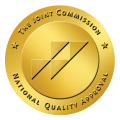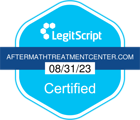Heroin, an illegal opioid, traces its roots back to medicinal uses in the 19th and early 20th centuries. However, it is now a far cry from its origins as a potential remedy, serving instead as a destructive force within American society. The opioid epidemic, of which heroin is a substantial part, is responsible for over 80,000 drug overdose deaths in 2021 in the United States. This underscores the magnitude of the problem that continues to grow.
If you or someone you care for is battling heroin addiction, choosing to get help at an addiction treatment center could be the first step toward recovery. Our experienced, compassionate Aftermath Addiction Treatment Center staff are committed to guiding clients to better health and happiness. Because each client has unique circumstances and needs, our programs are customized based on the client’s goals with the assistance of our treatment specialists. Our evidence-based approach to treatment provides effective therapies that set clients up for long-term success in recovery. To learn more about Aftermath Addiction Treatment Center’s heroin abuse treatment, contact us at 855-795-1226.
What Is Heroin Abuse?
When introduced into the body, heroin rapidly enters the brain and binds to opioid receptors, particularly those involved in feelings of pain and pleasure. It causes a surge of euphoria, often referred to as a “rush,” followed by a prolonged state of relaxation and contentment. These sensations, however, come with grave consequences.
Heroin slows the heart rate, breathing, and mental function, increasing the risk of heart disease, pneumonia, and cognitive impairments. Its effects on appetite and sleep patterns can lead to malnutrition and various associated health issues.
The psychological effects can be just as devastating. Heroin use often leads to mood swings, paranoia, and isolation as the individual becomes increasingly focused on acquiring and using the drug. Over time, it can result in depression and anxiety, worsening the cycle of heroin abuse and making it nearly impossible to quit.
Warning Signs of Heroin Abuse
One of the earliest signs of heroin use is a dramatic behavior change. This could involve a sudden withdrawal from social activities, unexplained financial troubles, and frequent absences from work or school. The individual who is addicted may become secretive and elusive about their activities, and may begin to neglect responsibilities. This abrupt shift is often a consequence of the intense preoccupation with the drug, which gradually takes precedence over all other aspects of their life.
Another behavioral sign of heroin abuse is the onset of deceptive or criminal behavior. Individuals suffering from heroin addiction may resort to lying, stealing, or engaging in other activities to obtain the drug. Heroin use also manifests in notable physical signs. Individuals may exhibit constant flu-like symptoms, which in reality could be withdrawal symptoms. These can include:
- Nausea
- Vomiting
- Sweating
- Sudden weight loss
- Changes in skin complexion
- Generally unhealthy appearance
Heroin also influences a person’s mood dramatically. Mood swings can be quite common, with an individual appearing euphoric one moment and despondent the next. This cycle continues with the pattern of drug use – euphoria immediately following administration and depression during withdrawal.
It’s important to remember that recognizing these signs is not to pass judgment but to intervene and offer help. Heroin addiction is a serious medical condition, not a moral failing, and it requires appropriate medical treatment.
Begin Heroin Abuse Treatment at Aftermath Addiction Treatment Center
Thousands of American lives each year are ruined by opioids, including heroin. At Aftermath Addiction Treatment Center, we are committed to providing life-saving help and treatment to individuals suffering from addiction. We offer a complete range of treatments and therapies that are customized to each patient’s needs. To learn more about how our addiction treatment specialists can support you in your recovery journey, contact us at 855-795-1226.
. Our admissions team is standing by to listen to you.







